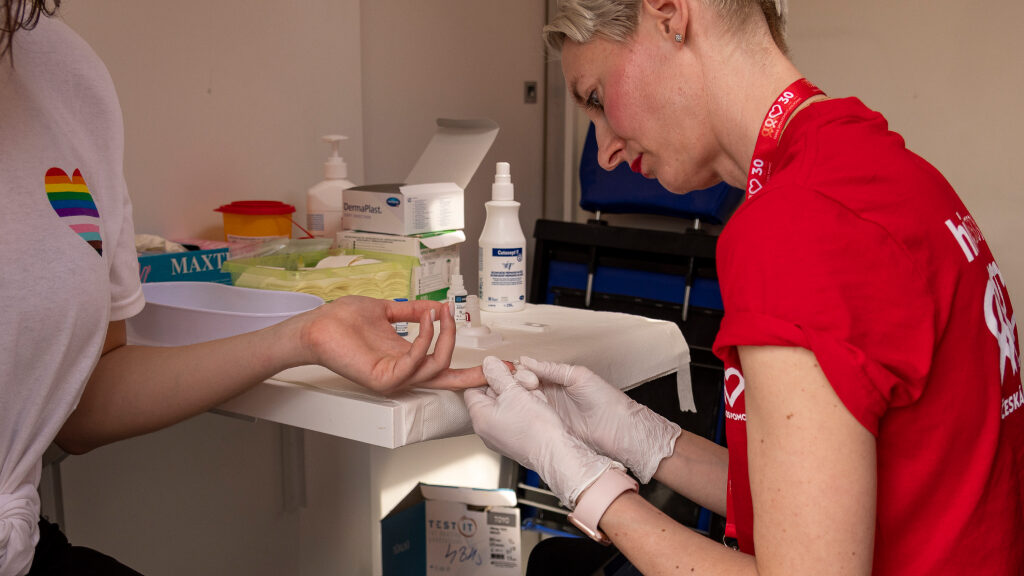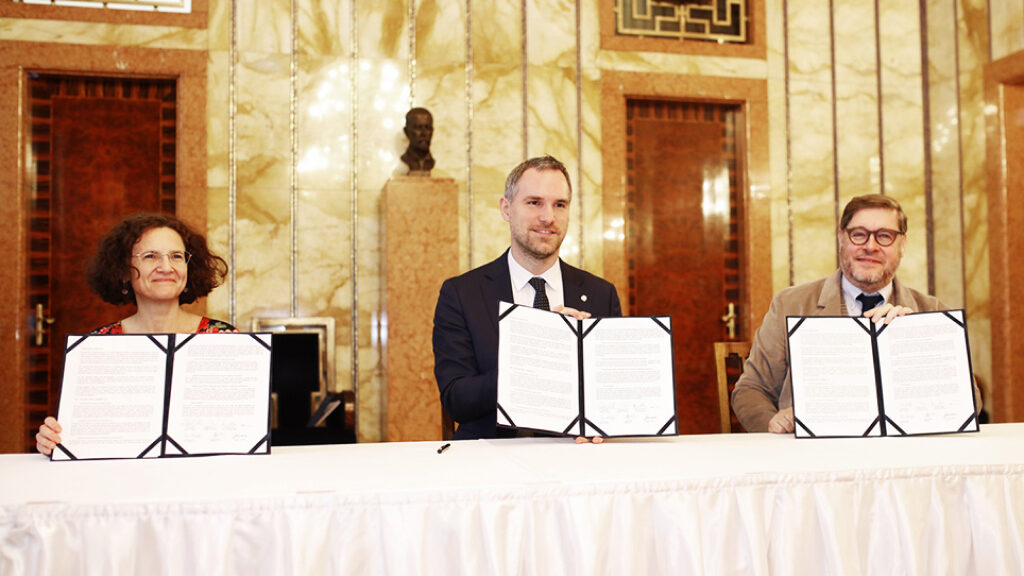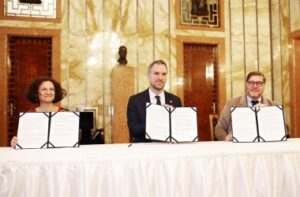Fast Track Cities
Smyslem sítě Fast-Track Cities je sdružovat světové metropole, které se potýkají s šířením HIV/AIDS, a umožňovat vzájemné sdílení zkušeností, dat a úspěšných strategií. V současné době je do sítě Fast-Track Cities zapojeno přes 300 měst včetně Prahy.

Cíle projektu
Cíl testovací
Alespoň 90 % osob žijících s HIV by mělo o svém HIV statusu vědět.
Cíl léčebný
Alespoň 90 % HIV pozitivních osob bude léčeno antiretrovirovými léky.
Cíl léčebný a preventivní
Alespoň 90 % osob žijících s HIV bude díky užívání léků a sledování mít potlačené množství kopií viru HIV v krvi na nedetekovatelnou úroveň. To v praxi při řádném dodržování léčby zabraňuje sexuálnímu přenosu infekce.
Boj proti diskriminaci
Pařížská deklarace navíc stanoví jako další pilíře činnosti boj proti diskriminaci a stigmatizaci HIV pozitivních lidí. Bez odstranění diskriminace a stigmatizace nelze cílů 90-90-90 dosáhnout.
O projektu
Kvůli nečinnosti koordinační pracovní skupiny Národního programu HIV/AIDS se v roce 2019 řešení situace HIV v Praze ujalo přímo vedení hlavního města. Většina záchytů HIV se v současnosti odehrává právě na území metropole.
Magistrátní pracovní skupina pro prevenci HIV/AIDS v roce 2019 vypracovala městský akční plán pro naplňování Národního programu řešení problematiky HIV/AIDS v České republice na období 2018 – 2022. Jako jedno z doporučení akčního plánu bylo uvedeno přistoupení Prahy k iniciativě Fast-Track Cities.
Praha se stala členem Fast-Track Cities 5. prosince 2019. Slavnostního ceremoniálu se zúčastnil Zdeněk Hřib, primátor hlavního města Prahy, Milena Johnová, radní pro oblast sociální politiky a zdravotnictví, a Bertrand Audoin z organizace International Association of Providers of AIDS Care (IAPAC), jež stála u zrodu Fast-Track Cities.
Spolek Prague Pride přispěl k přistoupení Prahy k Fast-Track Cities tím, že zprostředkoval jednání zástupce iniciativy s vedením měst a s ostatními hlavními subjekty působícími v Praze v oblasti HIV (zejména se jednalo o neziskové organizace, ale i lékaře a zaměstnance státních institucí fungujících v oblasti HIV).

Co je iniciativa Fast-Track Cities
Iniciativa „Fast-Track Cities: ukončení epidemie AIDS“ vznikla podpisem Pařížské deklarace v roce 2014. U jejího vzniku stály International Association of Providers of AIDS Care (IAPAC; Mezinárodní asociace poskytovatelů péče v oblasti AIDS), Joint United Nations Programme on HIV/AIDS (UNAIDS; Program OSN pro boj proti HIV/AIDS), United Nations Human Settlements Programme (UN-Habitat; Program OSN pro lidská sídla) a město Paříž.
Co Praze iniciativa přinese
Připojení k mezinárodní iniciativě Praze potenciálně zpřístupní specifické finanční zdroje pro nestátní neziskové organizace a další organizace působící na území Prahy v boji s HIV.
Usnadní networking s regionálními lídry, kteří místním odborníkům na základě vytvořeného partnerství s ostatními městy předají své know-how v rámci nejrůznějších workshopů či dalších aktivit mezi partnerskými městy. S ohledem na geografickou blízkost se nabízí výměna zkušeností např. s Vídní a Berlínem, které jsou stejně jako Praha častým cílem tzv. sexuálních turistů.
V případě hlavního města Prahy se předpokládá přijetí souboru opatření zajišťujících zejména trvalý přístup ke kvalitnímu testování, eliminaci stigmatizace a diskriminace spojené s HIV, úzkou spolupráci s komunitami, ohroženými skupinami i s orgány ochrany veřejného zdraví, zdravotnickými zařízeními a policií. Umožní to zacílit omezené finanční a lidské zdroje k efektivním a vyzkoušeným aktivitám vedoucím k potlačení infekce HIV. S tím souvisí likvidace strachu z testování HIV a také omezení stigmatizace a diskriminace HIV pozitivních občanů.


